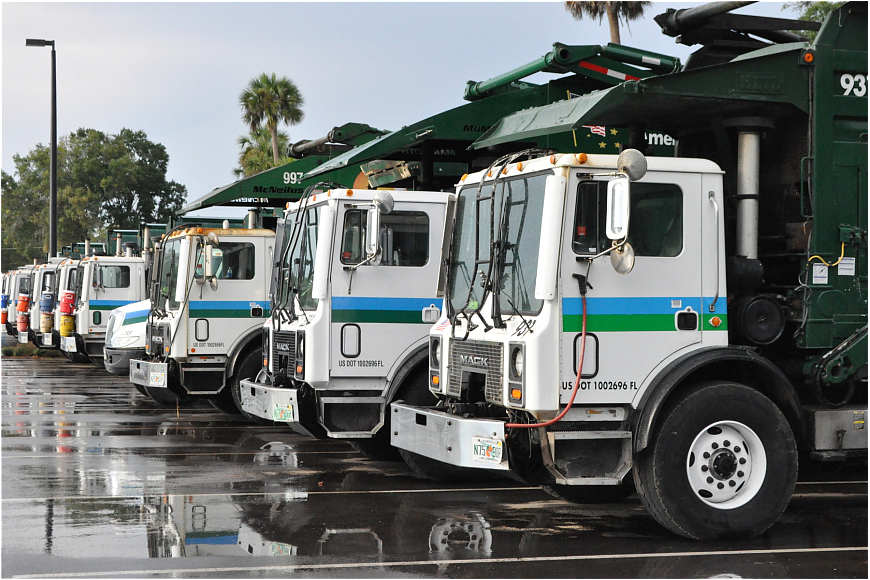- December 13, 2025

Facing international changes in the recycling market and new state regulations, Palm Coast is preparing for a new solid waste hauling contract — but the city wants citizens' input on what that contract should look like. A city survey about the solid waste contract has so far received approximately 9,000 responses, and will close March 31.
Since 2017, city residents have paid $20.36 each month for twice-a-week garbage pickup and once-a-week recycling, yard waste and white goods/bulk pickup, said Cynthia Schweers, Palm Coast's director of citizen engagement, during a city of Palm Coast Virtual Town Hall.
The city will have three general options for its future contract, said Allison Trulock, managing director of solid waste for the consulting firm NewGen: Keeping the current manual pickup system, in which residents provide their own waste containers, which are picked up and dumped into a truck by collector staff; switching to a semi-automated system in which the city provides wheeled waste containers that are wheeled into position by waste collection staff, but lifted and dumped into the truck with a machine "tipper" arm; or automated collection, in which the trucks are staffed only by a driver, and the trucks grab and empty city-provided waste cans.
With either semi-automated or automated pickup, the city would provide waste containers.
The reconsideration of the city's process is a response to global shifts in the value of recycling, Trulock said.
"There have been a lot of changes in the past year," she said.
China, which used to purchase close to half of the U.S.'s recycling exports, changed its regulations starting in the summer of 2018 and stopped accepting U.S. recycling, leading the recycling market in other areas to have excessive supply and drive prices and revenues down, Trulock said.
"Since the beginning of 2018, there have been some real challenges in the industry to keep these recycling programs funded," she said. "The good news is in 2020, those prices started to recover."
One outcome is a new state law that requires communities' contracts with haulers to address potentially costly contamination — what happens when the wrong items end up in recycle bins. Locally, Trulock said, a contamination prevention and mitigation strategy may involve the hauler leaving notices on residents' recycle containers if they're contaminated.
"It allows the program to be more cost effective if we can minimize contamination," she said.